Spotlight: Riaz Phillips on fundraising for minority communities and demanding diversity among decision-makers
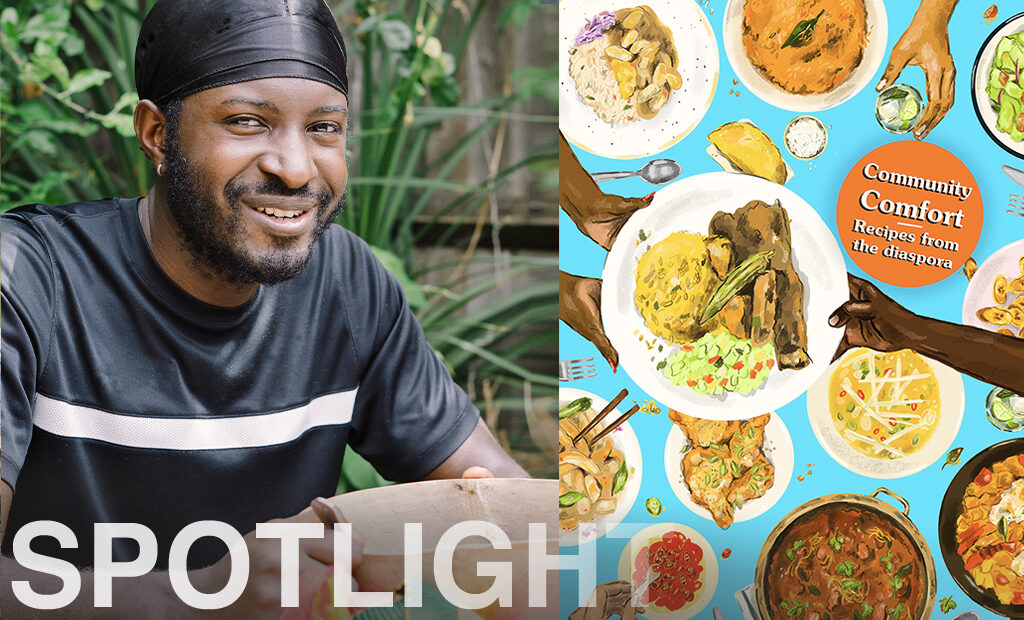
With the aim of promoting a food industry that is sustainable and diverse, The Upcoming has launched a new Spotlight series, a monthly feature to give space to people, often unsung, who are changing things for hospitality.
When it came to light that BAME people have been disproportionately affected by Covid-19, writer, photographer and activist Riaz Phillips decided that he needed to do something to help. Food being a great way for communities to come together, he felt the best way to respond to the crisis was to put together a collaborative cookbook; Community Comfort is the impressive result. The proceeds of every sale go towards the Majonzi Covid-19 Bereavement Fund, a charity which supports the families that coronavirus has touched in the black and ethnic minority community, helping with everything from funeral arrangements to bereavement counsellors and therapists. Incredibly, the book raised £10k on its first day.
Containing over 100 recipes from non-white chefs, restaurateurs and food enthusiasts including Denai Moore, James Cochran, Romy Gill and Vivek Singh, the publication aims to provide financial aid to those hit hardest by the pandemic whilst also promoting those often underrepresented in the food industry. Phillips was keen that the book be a celebration of the dishes that mean most to their creators. “I just started on Instagram dm’ing people asking if they would recommend anyone and it snowballed from there. I didn’t dictate the recipes to be submitted at all, I just wanted people to submit whatever their comfort food was,” he explains.
With cultural appropriation being such a huge problem in the food industry, we ask Phillips the best way to tackle it. His answer is two-fold: “Either more accountability when it comes to calling out people who are consistently benefitting off other peoples culture without giving back, or just to have a diverse display of faces in the food scene to begin with.”
Having travelled extensively in Jamaica and Ghana, the writer-videomaker is very aware of how these cuisines are misrepresented and underrepresented in the UK: “Both are remarkably healthy and whole-food-based, but this never gets discussed. I actually think the most misrepresented food in the UK is Chinese food. I’ve been three times and the food you find there is nothing like the ‘Chinese’ food that’s sold here and in the USA.”
Fortunately, according to Phillips some food cultures seem to be reversing this worrying British trend. “There’s a growing lot of vegan Caribbean spots like Eat of Eden and Zionly Manna that I cover in my book that are doing well to re-shift the idea of what Caribbean food means and can be. On top of this, there seems to be a lot of regional Indian restaurants re-educating the UK on their food as it has also been misrepresented for decades in the UK.”
Phillips emphasises the importance of food as comfort, particularly during a pandemic: “I noticed many people like myself were turning to their heritage comfort food for a number of reasons by using the new found time to educate themselves on their own heritage or as a means of escapism. I thought it would be great to unite all these differing comfort foods (that were predominantly from food cultures underrepresented in mainstream media) into one book to display them to a wider audience and in the process try and raise some funds for a good cause.”
“The statistics suggest they [BAME communities] have been disproportionately affected by Covid-19 and its aftermath. I don’t think they necessarily need a cookbook like this but rather everything it promotes – community togetherness, social cooking and comfort food. Any way the book can help is a positive.”
With so many recipes to choose from, including the likes of The Great British Bake Off‘s Ruby Tandoh and Selasi Gbormittah, we were keen to find out Phillips’ favourite recipe. Naturally, he is drawn to warming, familiar flavours: “If I had to pick I’d just be biased and pick my one for Jamaican Red Peas Soup, which is actually my mum’s recipe.”
However, though this project is undoubtedly a huge triumph in the face of adversity, it is of course a stark reminder of the inequality that led to its conception. Given the lack of diversity in the food industry, Phillips is keen to see more change among decision-makers: “All I know is that in all industries from top to bottom there is a serious lack of representation of people of colour even with an overwhelming amount of talent. The questions about what should be done to make industries more inclusive should be asked to those in power who are the gatekeepers, not those who have systematically been kept out.”
“The main progress that I would like to see is more diversity in the decision making collectives and gatekeeping cohorts which hopefully have a trickle-down effect where the entire industry becomes more representative of today’s Britain. Whatever investment leads to that. That’s for food and everywhere else.”
Phillips has a significant presence on social media, with his YouTube videos exploring authentic cuisine across the world having garnered over 1.5m views. Online sharing platforms have indeed been instrumental in giving underrepresented groups a voice in an industry that hasn’t been open to them before. “It has made a monumental shift in the ability of people with talent or with an idea to reach a huge audience. This is particularly the case for those of us who don’t feel ourselves or are represented in mainstream media. Online we can all find our tribes and that’s amazing. It also means that mainstream media will eventually have to play catch up to these new forms of communication as they already are beginning to look a bit stale and outdated.”
When asked about his plans for this year, Phillips confesses that he has learnt a thing or two from the sheer unpredictability of the past few months: “2020 has shown that making plans is foolish, so as long as I have the ability to keep working on projects that excite me and in the process continue reaching an audience who appreciate it.”
Lilly Subbotin
and Rosamund Kelby
Community Comfort can be downloaded for a minimum £10 donation here. All proceeds go to the Majonzi fund. Phillips has also written Belly Full, a book about Caribbean food in the UK.

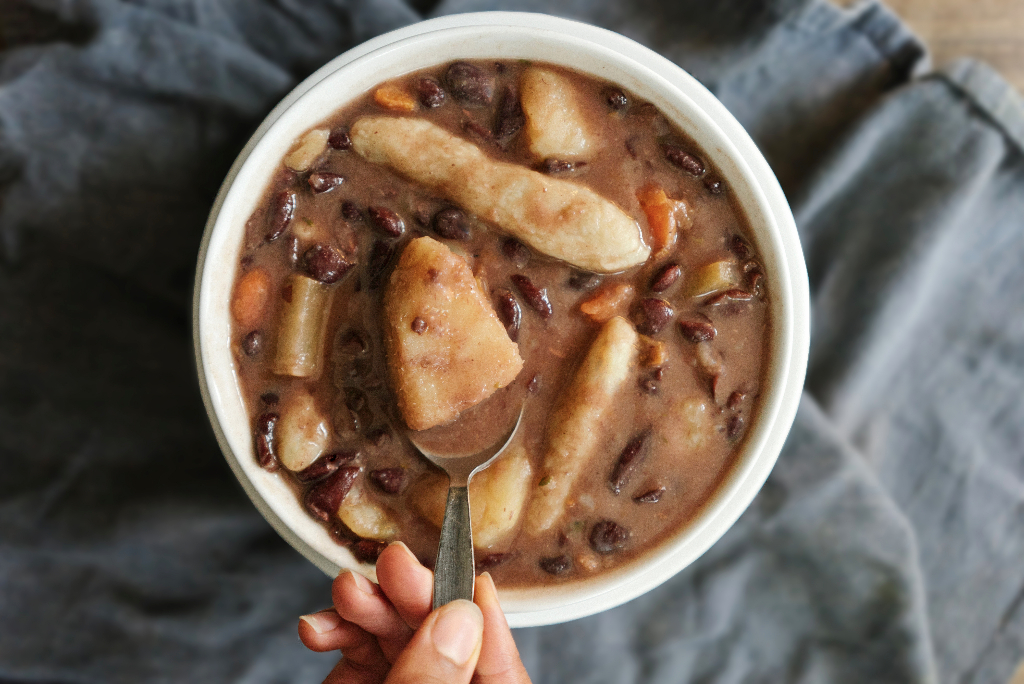
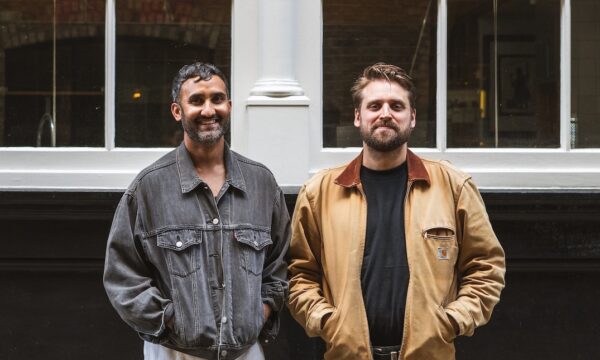
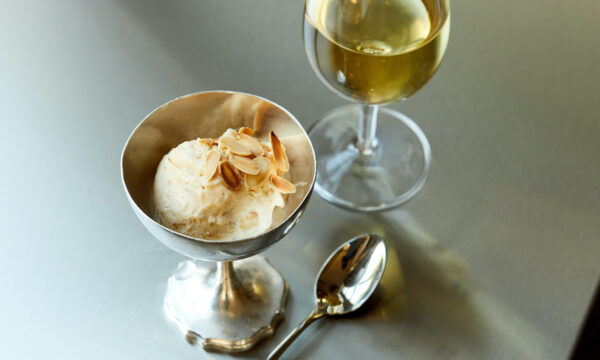
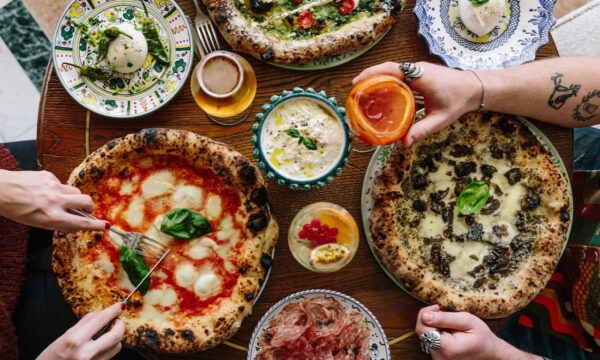

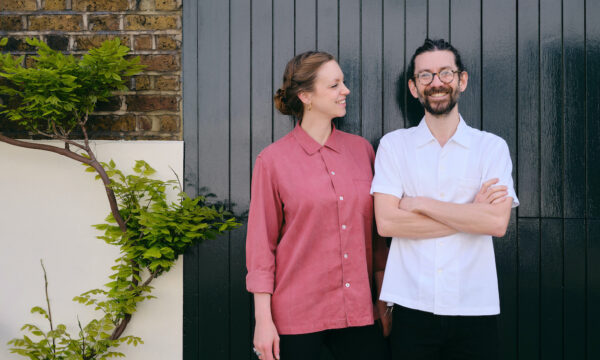
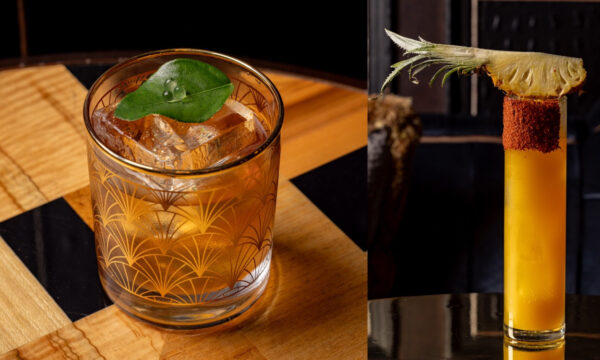


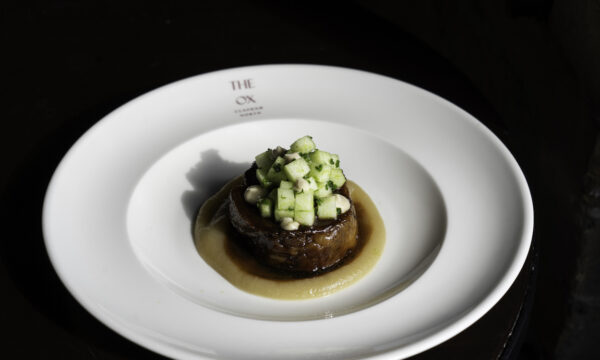









Facebook
Twitter
Instagram
YouTube
RSS